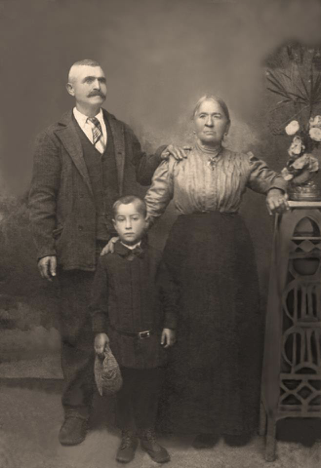I have been reading up on some information about some consulates not interpreting the 1912 rule as "if the parent naturalized prior to 1912, the minor lost citizenship." Some disregard it or see it as retroactive. I have heard Philly does this.
I am completely green in regards to citizenship, with the exception of the 1912 rule (G-G-GF naturalized in 1909... 2 YEARS!!!! aah) and I would like to know where I can go to avoid denial.
Any help would be excellent.
Which Consulates overlook the 1912 rule?
Re: Which Consulates overlook the 1912 rule?
As far as I know, Philly is the only one, and I don't know if that is still true. You may want to check with one of the "1948" lawyers to see if there is a legal approach that is possible.
Re: Which Consulates overlook the 1912 rule?
The SF consulate doesn't even list the 1912 rule as a disqualifier on their website anymore when they have in the past. So I'm thinking SF may not care about it like they have. That's just a guess though. I'll find out in January when I have my appointment there because my gg grandpa naturalized on 15 June 1912, two weeks before the cutoff!
Re: Which Consulates overlook the 1912 rule?
Please update the Italian-American community. What happened at your appointment? Was the 1912 rule enforced or overlooked?
Genevieve
Roots in Sanremo
Genevieve
Roots in Sanremo
Re: Which Consulates overlook the 1912 rule?
Sanremo, as I noted several times, the so-called 1912 rule does not apply in your case.
People to whom this applies are those whose ancestors were born BEFORE their parent naturalized and lost citizenship even though their parents were citizens when they were born.
You suspect that your ancestor was born AFTER his father naturalized (naturalization 1905; birth 1906). In that situation the parent lost citizenship when he naturalized and, therefore, could not pass it to his child born later. This would be true in 1905, 1906, 1926, 1986 etc. (all the way up to 1992). When the law changed in 1912, this did NOT change. Only citizens could pass citizenship to their children, not former citizens. I cannot stress enough that yours is not a 1912 issue. It wasn't that your ancestor naturalized before the "1912 cut-off date" (sic), it was that he naturalized before the birth of his son.
That being said, it is my understanding that one 1912 case was presented but was unsuccessful; another is now in litigation, but I'm not sure how the circumstances may be different. If the courts do rule in the petitioner's favor, however, it does not affect you. Yours is not a 1912 issue.
People to whom this applies are those whose ancestors were born BEFORE their parent naturalized and lost citizenship even though their parents were citizens when they were born.
You suspect that your ancestor was born AFTER his father naturalized (naturalization 1905; birth 1906). In that situation the parent lost citizenship when he naturalized and, therefore, could not pass it to his child born later. This would be true in 1905, 1906, 1926, 1986 etc. (all the way up to 1992). When the law changed in 1912, this did NOT change. Only citizens could pass citizenship to their children, not former citizens. I cannot stress enough that yours is not a 1912 issue. It wasn't that your ancestor naturalized before the "1912 cut-off date" (sic), it was that he naturalized before the birth of his son.
That being said, it is my understanding that one 1912 case was presented but was unsuccessful; another is now in litigation, but I'm not sure how the circumstances may be different. If the courts do rule in the petitioner's favor, however, it does not affect you. Yours is not a 1912 issue.
-
BitrettoBound
- Newbie

- Posts: 1
- Joined: 29 Jan 2018, 18:11
Re: Which Consulates overlook the 1912 rule?
This one is for MLER -- Greetings,
My Grandfather was born in Italy BEFORE my great-Grandfather was naturalized. My Grandfather then came through Ellis Island AFTER with his mother (my Great-Grandmother). Would the Rule of 1912 be the issue for me here? If so, can it be contested? My father was born AFTER my Grandfather naturalized in 1942 (if it matters).
Thank you for any help you might offer.
Best,
BB
My Grandfather was born in Italy BEFORE my great-Grandfather was naturalized. My Grandfather then came through Ellis Island AFTER with his mother (my Great-Grandmother). Would the Rule of 1912 be the issue for me here? If so, can it be contested? My father was born AFTER my Grandfather naturalized in 1942 (if it matters).
Thank you for any help you might offer.
Best,
BB
Re: Which Consulates overlook the 1912 rule?
Not a 1912 issue, but your gf could not pass citizenship to your father since he was not an Italian citizen when your father was born.
However the date your gf married your grandmother is important because there is a possibility that your dad obtained citizenship through her. Two questions:
1. When did your grandparents marry?
2. When was your father born?
However the date your gf married your grandmother is important because there is a possibility that your dad obtained citizenship through her. Two questions:
1. When did your grandparents marry?
2. When was your father born?



